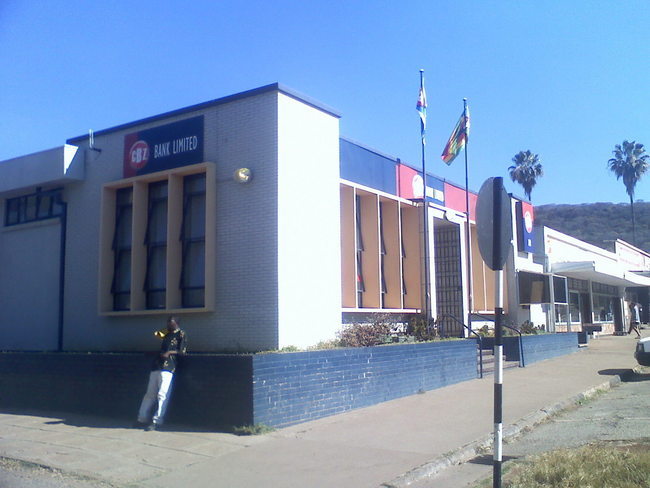Government has closed its CBZ Bank (CBZ) account, a move the financial institution said will not affect its business.
CBZ has since 2009 been acting as the State's bankers following the Reserve Bank of Zimbabwe (RBZ)'s undercapitalisation and subsequent failure to perform its lender of last resort role.
The Zimbabwe Stock Exchange-listed CBZ Holdings Limited - the country's largest financial institution by asset base - is involved in commercial banking through its flagship arm CBZ Bank, mortgage lending, asset management and insurance.
Government holds a 21 percent stake in the group.
Its chief executive, John Mangudya, told businessdaily that the group was now in a solid position to focus on its principal duties without hassles of being an exchequer to government.
"It is therefore imperative for government to put mechanisms in place to ensure that the central bank is capitalised and have its lender of last resort role restored," he added.
Mangudya, however, warned that if government fails to raise funds to recapitalise the apex bank, there might be repercussions in the country's sensitive financial sector.
"If they don't do it, that will be difficult for the central bank to become government banker without capital. They (RBZ) will be tempted to take people's deposits and that will be worse than 2008," he said.
Christopher Mugaga, an independent economist, said while the opportunity cost of the move will always be significant, the feasibility of RBZ becoming government's bankers could be doubtful considering its almost absent trading nature.
He said a decline in government's deposits from 10 percent to two percent of CBZ's total deposits appears attractive to the financial institution.
"The two percent contribution might basically be a testimony of how empty the government coffers are," he said.
On the other hand, Mugaga said "the cheap deposits from government will certainly
not be compared with (CBZ's) $200 million bond which might run the risk of no takers despite the modest coupon rate attached to it."
"In the medium to long term, CBZ might experience some liquidity shocks," he said.
Presenting his 2014 National Budget last December, Finance minister Patrick Chinamasa said his ministry would ensure the RBZ was recapitalised by March 31, 2014.
He said between $150 million and $200 million was needed for the recapitalisation and efforts were already underway to raise capital in a bid to lower the cost of borrowing.
Zimbabwe adopted multiple foreign currencies - chiefly the United States dollar and South Africa's rand - in 2009 after its own currency was rendered worthless by hyperinflation, ruling out central bank's interventions through monetary policy.
The tight liquidity conditions have resulted in high interest rates which the government hopes can be lowered by the resuscitation of an interbank market anchored by a well-capitalised central bank.
CBZ - with an asset base of $1,5 billion - registered a $36,7 million profit for the year ended December 2013, shrugging off a dollar crunch that left depositors unable to withdraw their money from banks at the end of last year.
- dailynews
 Concern over Masvingo black market
Concern over Masvingo black market  Kenya declares three days of mourning for Mugabe
Kenya declares three days of mourning for Mugabe  UK's Boris Johnson quits over Brexit stretegy
UK's Boris Johnson quits over Brexit stretegy  SecZim licences VFEX
SecZim licences VFEX  Zimbabwe abandons debt relief initiative
Zimbabwe abandons debt relief initiative  European Investment Bank warms up to Zimbabwe
European Investment Bank warms up to Zimbabwe  Young Investment Professional (YIP) Graduate Programme 2019
Young Investment Professional (YIP) Graduate Programme 2019 











 Young Investment Professional (YIP) Graduate Programme 2019
Young Investment Professional (YIP) Graduate Programme 2019
Editor's Pick